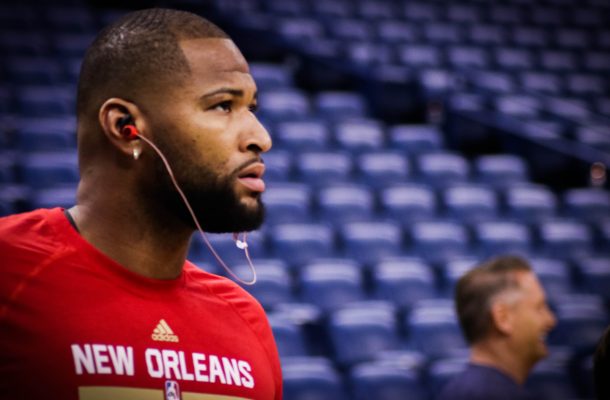The Midnight Dance »
How to Use the Pelicans’ Q-Pon Coupon

The NBA free agency period is fast approaching, which means that the Pelicans’ front office members have probably hardly slept recently. As is the case for most seasons, there are a great deal of variables at play; as such, the team has surely built out a multitude of scenarios, flowcharts, and other far more technical models to help inform the decisions that they’ll soon need to make. The Pelicans must look at their current assets (as well as their liabilities) in order to determine the best course of action with both the short-term and long-term in mind. Clearly, there is lots to consider in order to ensure sustained success for this franchise.
With this goal in mind, there are some clear resources at their disposal during free agency next month – Bird rights, cap exceptions, and other mechanisms. However, there are also other avenues to adding talent that are not as easily apparent, but still important in their own right. One such tool is a trade exception, which is a credit created by a non-simultaneous trade (see Larry Coon’s great explanation here). All trade exceptions last for one year, allowing a team to add salary (via trade, not free agency) without having to send out matching salary. The Pelicans obtained one such exception via the Quincy Pondexter trade last summer, and it expires on September 1st. The exception amount is $3,853,931 – the richest of the Pelicans’ four trade exceptions that they currently own – enabling the team to take back about $500K more than the 2018-19 bi-annual exception amount of $3,454,500 (teams are allowed to acquire an extra $100K on top of the full exception amount, but cannot combine exceptions together).
Now that we understand how this exception works, how can the Pelicans use it? First things first – if the Pelicans bring back DeMarcus Cousins or agree to a sign-and-trade that brings back similar salary to Cousins, then the exception will likely expire unused (which is not a rare occurrence with trade exceptions) unless the Pelicans are comfortable with paying the luxury tax. While the Pelicans would have until the trade deadline to get under the tax line, doing so could end up being quite costly from an asset perspective depending on how far they need to go to get under it. However, if Boogie gets an offer that the Pelicans don’t feel comfortable matching & therefore end up comfortably under that tax line, the exception could be another convenient avenue through which to add talent without being required to send out any salary in return. (In fact, if Cousins were to agree to sign with another team that has the requisite cap space to do so, the Pelicans could even attempt to work out a trade with that team to swap him and some other tiny asset for a much larger trade exception that they would then have a full year to use.)
A few players currently under contract who would fit within the Pondexter exception (+ $100K): Stanley Johnson, JJ Barea, Jodie Meeks, Kelly Oubre, Troy Daniels, Tomas Satoransky, Reggie Bullock, and a host of other players on rookie scale deals.
Let’s take it a step further now – the Pelicans could even use the Pondexter trade exception to bring in a player via a sign-and-trade this summer. Doing so would subject the Pelicans to the hard cap that we got to know so well last summer, so it would probably only be wise to do so if the team was so far under the apron that it could not conceivably reach that salary threshold. Now, a player who would fit into that exception likely wouldn’t be a guy who would be expected to play heavy minutes on a playoff team. That being said, if history is any indication, there will likely be at least a couple free agent rotation players left standing when the music stops given how tight the market is this summer, & that trade exception could end up being the most lucrative option.
How would using that $3.85M trade exception work in practice from a sign-and-trade perspective? A couple of players come to mind immediately, and there are surely other possible candidates elsewhere. For example, let’s say that Mario Hezonja he ends up stuck with nothing but minimum or bi-annual exception offers. The Pelicans could have the Magic sign him using their limited Bird rights and take him into the trade exception, sending the Magic a little cash for their troubles. Another possibility could be Seth Curry. The younger Curry brother turns 28 in August, and could prefer to move to a team a bit closer to playoff contention than Dallas. The Pelicans could capitalize on Curry’s early Bird rights and orchestrate a similar trade to the Hezonja example.
Obviously, scenarios such as these would be neither plan A nor plan B for Demps and the Pelicans. But the team needs to know all of its options for all realistic scenarios this summer, and as such, it’s not a bad option to have in their back pocket.




